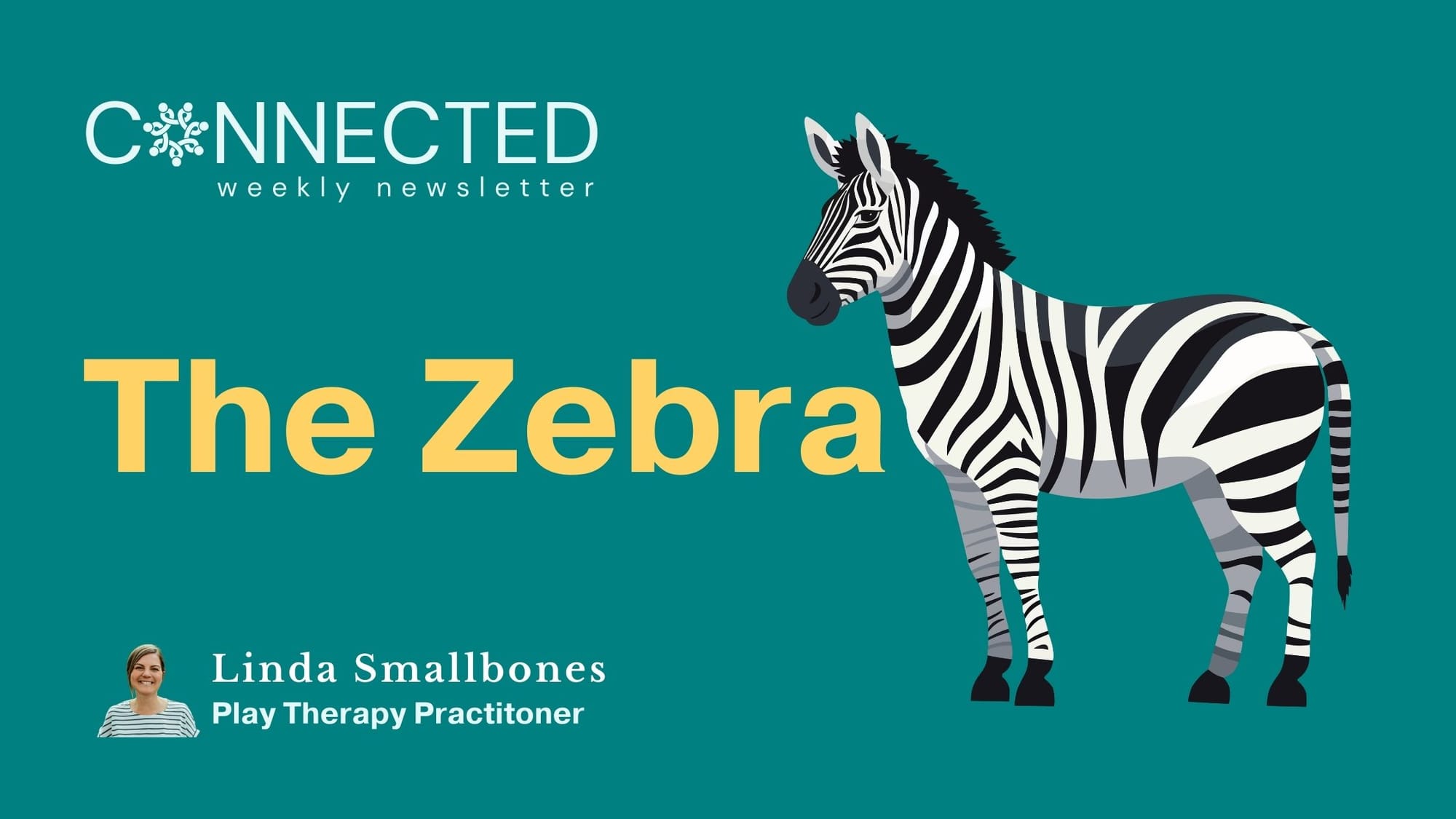The Zebra
Explore how children perceive parental work and its impact on playtime. Reflect on work-life balance and discover brain-building play ideas.

“My mom is like this zebra. The black part reminds me of her computer keyboard she works on all the time,”
Said a 7-year-old to me recently.
I wasn’t sure how I felt about hearing this perception. It brought up a whole lot of questions and thoughts in my mind, especially about the way our children see us spending our time when they are around us. Our children would love us to be available to be their playmate almost constantly, but this is not realistic.
The work-from-home movement has caused dilemmas in many households. Mom and/or dad is here, but not actually available. This is a tough one for the very little people to get their heads around.
Or maybe we don’t work from home, but work is always following us home! If it feels like we’re working all the time, imagine that perception in a young child’s mind. They feel it like a real absence, we’re there but not really. They don’t get us to play with.
Some jobs, and some seasons in some jobs demand a lot of us. Take stock of when last you played with your child, and think about the role your work (the black stripe in the zebra!) has in preventing play from happening.
Below is a link to Harvard University’s Centre on the Developing Child resource on ideas for brain-building play for children of all ages. They have fantastic information via articles and podcasts about play and its role in our children’s development.
View Handouts - Harvard University: Brain Building Through Play
From infancy on, play is an important part of a child’s life. For babies and toddlers, simple, playful interactions with adults help develop sturdy brain architecture, the foundations of lifelong health, and the building blocks of resilience. Through games and playful activities, children build essential social, emotional, and cognitive skills that benefit them throughout life.
Center on the Developing Child at Harvard University
Now, go forth and play this weekend! And enjoy!